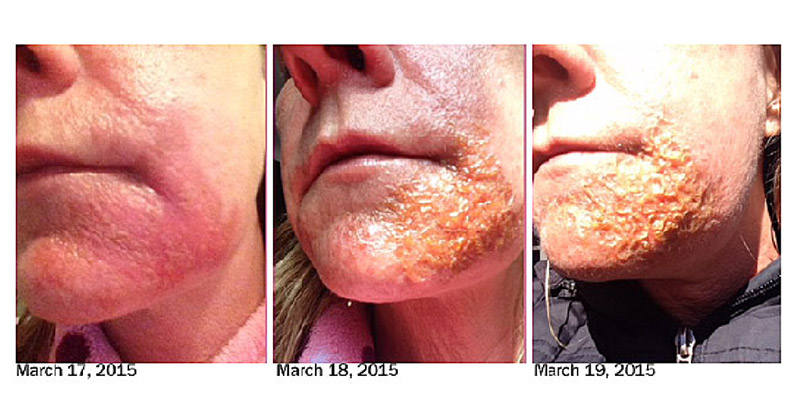Essential oils have been marketed as being able to treat everything from mood swings to autism to cognitive decline. If you’re into the health and wellness field, or even just vaguely aware of it, chances are you’ve heard about one essential oil or another being good for something or even had a friend recommend them for things such as stress and depression.
Stacey Haluka certainly did. An acquaintance who worked for a marketing company assured Stacey that the oils could be used for anything and everything and used liberally. After a few months, Stacey had a severe reaction to essential oils that impacted her for the rest of her life.
Unfortunately, Stacey’s story isn’t uncommon. A lot of this marketing for essential oils can come from companies trying to sell their products and not from health professionals with your best interest in mind [1]. The truth is that essential oils are very powerful and should be used with caution or as directed by a healthcare professional—here’s what you should be aware of when using essential oils in any application!
Myths About Essential Oils
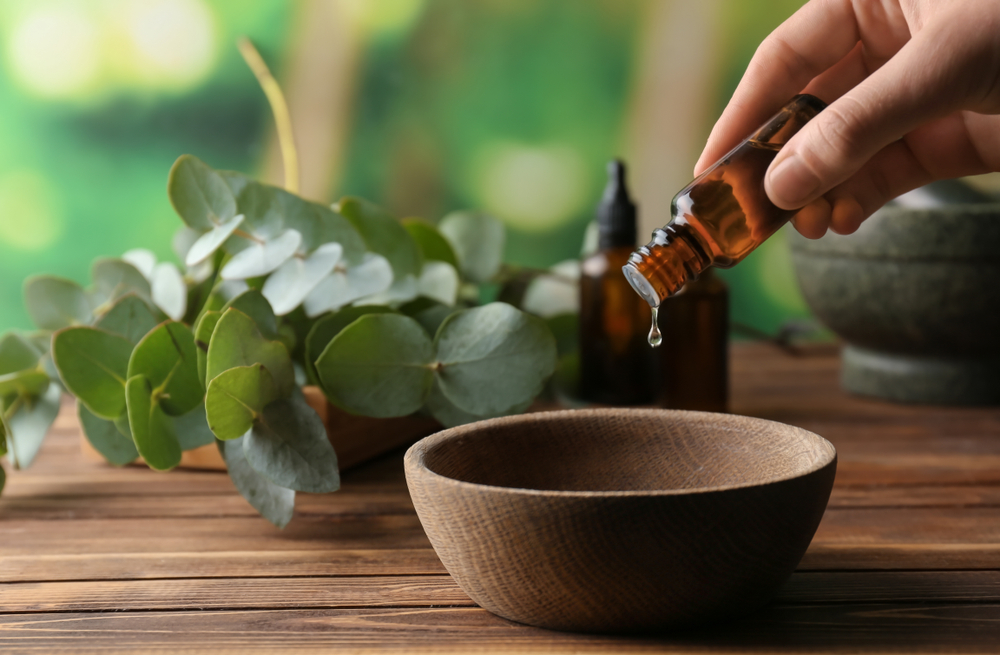
There are many myths about essential oils that people believe despite the fact that many of these myths can lead to inappropriate and risky if not downright harmful use of these oils.
Myth #1: Essential oils can be safely ingested (taken internally). This is usually not true—while there are a few exceptions to this rule, you should never take essential oils internally unless directed by your natural healthcare professional.
Myth #2: Essential oils can be applied directly to the skin. Again, while there are exceptions to this, you should never apply essential oils to the skin without diluting them in a carrier oil such as avocado, coconut, or jojoba oil, and even then, I wouldn’t recommend this unless under the direction of a professional.
Myth #3: If you have a reaction, it means your body or skin is detoxing. This is just not true; it usually means you’ve used the oil incorrectly and your body is telling you to stop [2]!
Myth #4: Essential oils are safe because they are natural. Natural substances can be just as powerful as conventional remedies and in many cases even more so. You should only ever use them as directed!
Read More: 6 Essential Oils You Need to Repel Bugs All Summer Long
The Truth About Essential Oils
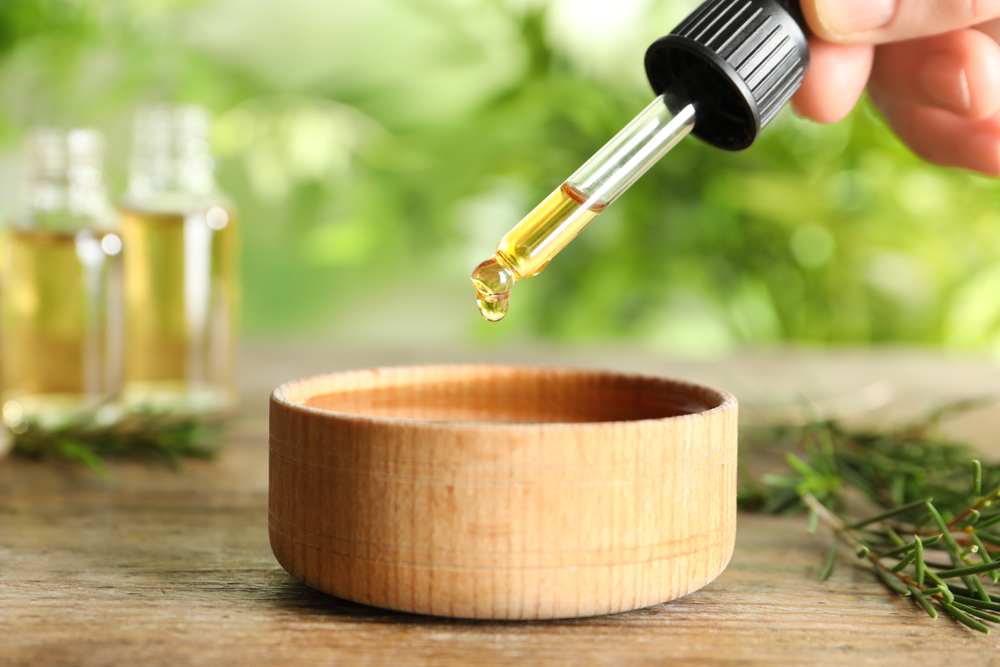
Some people have had severe reactions to essential oils because they are using them incorrectly and too much [3].
Essential oils are very powerful and should be treated as a therapy for a specific ailment under professional advisement. To give some perspective on the concentration of these oils:
- 1 drop of rose essential oil is the equivalent of 30-50 roses [4].
- 1 drop of peppermint essential oil is equivalent to 28 cups of peppermint tea.
- 250 pounds of lavender are needed to make 1 pound of essential oil.
- 1,500 lemons are needed to make 1 pound of essential oil.
While they’re sold over the counter, these oils should only be used under guidance by professionals and not the people who work for companies trying to sell their essential oils although they may mean well.
Research Backing Up Efficacy of Essential Oils
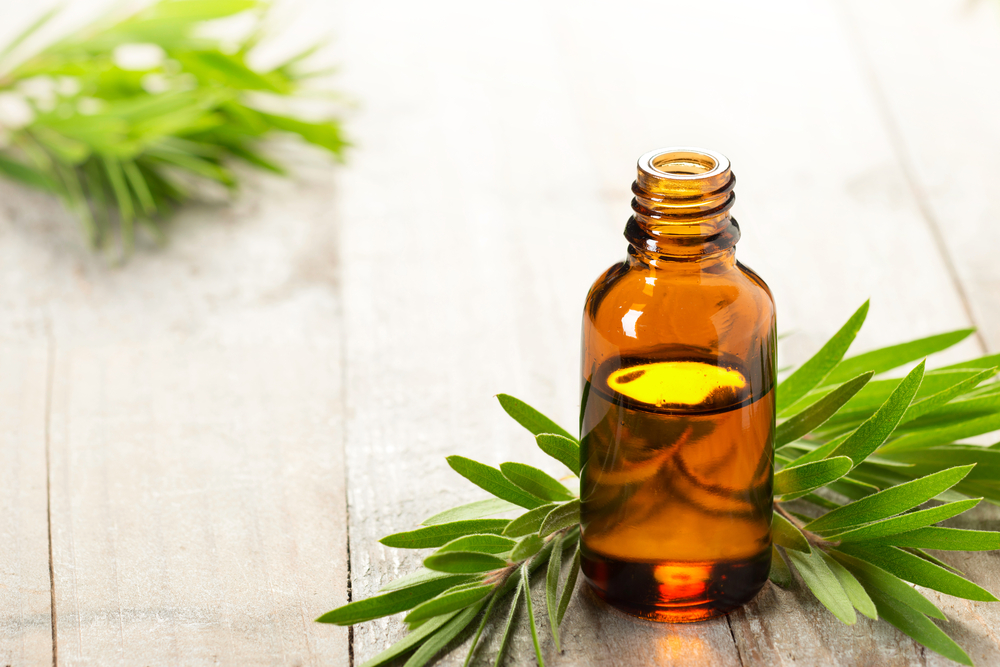
There is some science to back up the benefits of essential oils, although much of this research isn’t extensive and more needs to be done to better understand how essential oils work and their potential in medicine.
This research includes the efficacy of the use of frankincense for pain and depression, the use of lavender for anxiety [8], the use of peppermint for headaches and exercise performance [9], [10], and the use of ginger for nausea and vomiting [11].
However, you can’t just use these oils liberally and as you think is best—they are powerful medicines and shouldn’t be used excessively. Just because they’re natural doesn’t mean they aren’t powerful!
Important Things to Note About Essential Oils
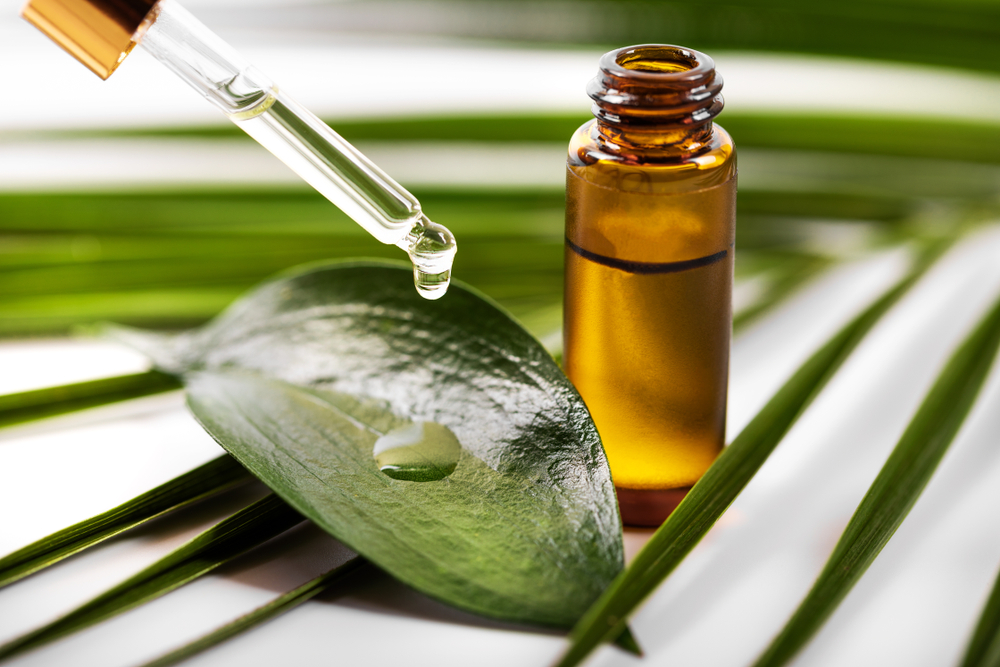
Some important things to note about the use of essential oils are:
All essential oils are not created equal. Some brands are purer than others. It’s important to read the label as well since some oils are already mixed with carrier oils.
There is a difference between organic and non-organic. Don’t assume oil is organic—the label will need to specify this. If buying organic is important to you, you may want to invest in the organic version of your essential oils.
Essential oils are not the same thing as synthetic fragrances. Synthetic fragrances can be very toxic. However, some compounds under the term “fragrance” can, in fact, be natural and may include certain components from natural essential oils [12].
Once you become sensitive, it’s hard to go back. Once you become sensitive to certain essential oils from overuse, it can be hard to convince the body that it doesn’t need to react to them, so you may never be able to use them again once you have a reaction.
Essential oils aren’t great for the planet. While certainly better therapies in regards to the environment as opposed to conventional medicines, essential oils generally aren’t great for the environment as they require large amounts of their plants in order to produce the oil.
Read More: Are Essential Oils the Secret Weapon to Survive Allergy Season?
Negative Reactions and Side Effects of Essential Oils
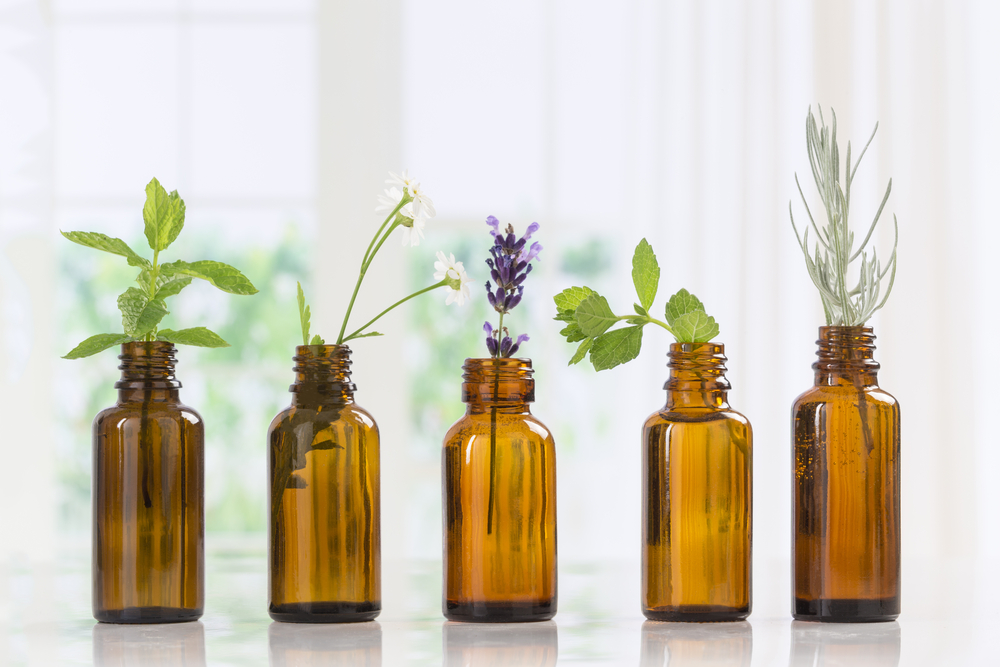
Stacey Haluka says four years later, she still struggles with her health as a result of her reaction and is suing the company that makes the essential oils she used. She claims to have scars and hypersensitivity to personal care products due to her toxic reaction.
In addition to chemical burns from applying essential oils, further caution is needed. Oils such as citrus and lemon verbena can increase photosensitivity/phototoxicity when applied before exposure to sunlight causing burns. People can also experience rashes around the eyes or mouth from essential oil diffusers or even essential oil mouthwashes or lip balm.
Blisters, asthma or allergy symptoms, and contact dermatitis are all negative health effects of overusing essential oils. While natural, essential oils can still have side effects and best practices should be used.
Modern Use of Essential Oils and Best Practices

I know I’ve made it sound like essential oils are dangerous, but the truth is that you can use essential oils safely with best practices. I use lavender essential oil in the tub and have been directed by one of my herbalists to use a specific essential oil blend for my dysmenorrhea.
When used properly, they can be great tools and resources for specific health conditions. Remember these best practices when befriending essential oils:
- Most essential oils cannot be taken internally with rare exceptions and even these exceptions shouldn’t be taken internally unless directed by a professional.
- Children, teens, and women who are pregnant or nursing can be even more sensitive to essential oils and may want to avoid them.
- Citrus essential oils can cause chemical burns when exposed to UV rays; they’re photosensitive and should not be used in natural sunscreen.
- Work with a health professional such as a certified herbalist, naturopath, or integrative health doctor who has experience using essential oils. Do not take health advice from a distributor for a company that sells essential oils: in general, they are trained to sell the product, not on how to use it for your health!
- Never use essential oils undiluted on your skin, especially an open wound, unless directed otherwise by a healthcare professional (usually only certain essential oils are safe to use undiluted such as lavender, chamomile, and rose).
- Never store them in plastic containers as they are so potent they can eat through plastic (you probably shouldn’t be using plastic, anyway!)
- Just because a certain essential oil might be beneficial for someone else doesn’t mean it’s beneficial for you. Everyone is unique and will react differently to certain substances and some people are more sensitive than others.
- Remember, most essential oils are flammable and should be disposed of properly [14].
The Verdict
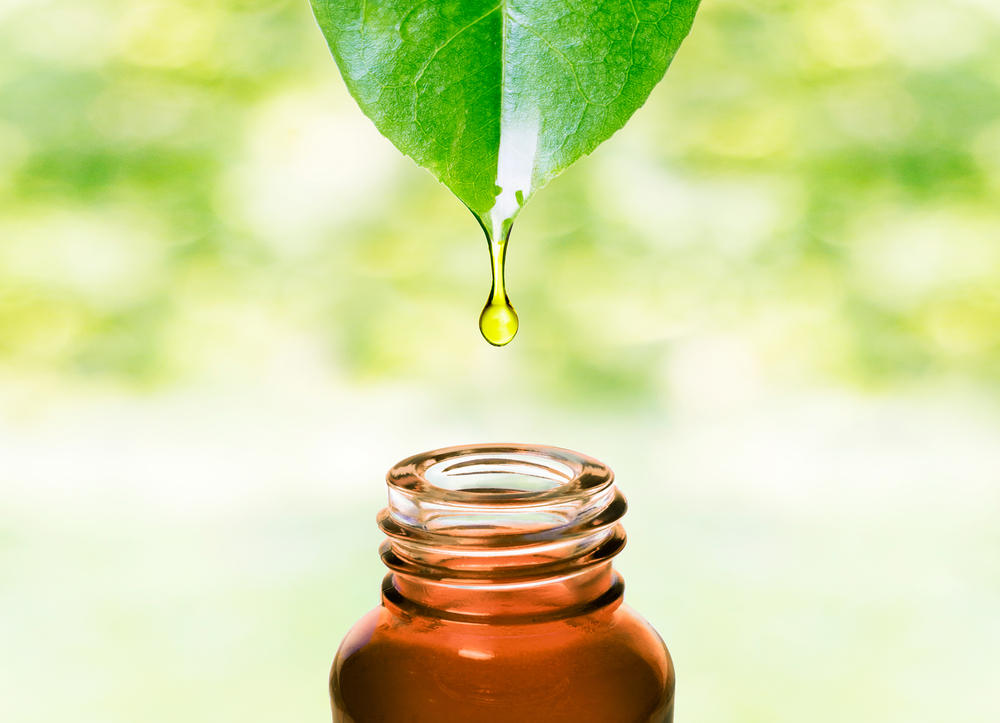
Essential oils, just like herbs and other natural supplements, should be considered powerful medicines and should only be used with the utmost caution.
Like any other supplement or product you use, you should carefully consider the benefits and risks before deciding to use. And like my grandmother always said, everything in moderation!
Read More: Can Essential Oils Help With asthma?
Sources
- https://www.consumerreports.org/consumerist/5-things-weve-learned-about-the-booming-essential-oils-business/
- https://tisserandinstitute.org/safety/irritation-allergic-reactions/
- https://www.aromaweb.com/articles/essential-oil-yields.asp
- https://www.earthisland.org/journal/index.php/articles/entry/the_environmental_impact_of_essential_oils/
- https://www.ncbi.nlm.nih.gov/pmc/articles/PMC6007527/
- https://www.ncbi.nlm.nih.gov/pubmed/23196150
- https://www.ncbi.nlm.nih.gov/pmc/articles/PMC4103722/
- https://www.ncbi.nlm.nih.gov/pmc/articles/PMC4818021/
- https://theheartysoul.com/why-fragrance-is-the-new-secondhand-smoke/
- https://www.ecowatch.com/environmental-impact-essential-oils-2465879288.html
- https://www.webmd.com/beauty/news/20180813/essential-oils-promise-help-but-beware-the-risks
